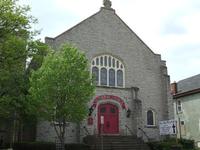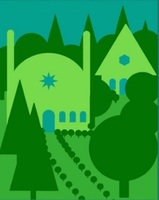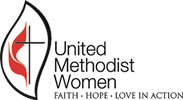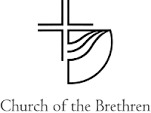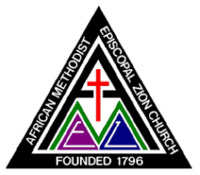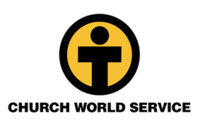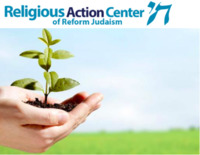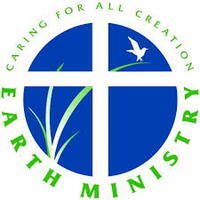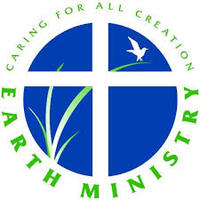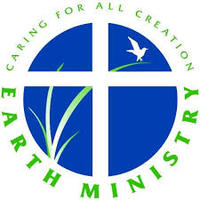Search
237 items
-
Earth Sangha
Earth Sangha is a non-profit public charity based in Washington, DC. Their mission is to work towards ecological restoration as a form of socially engaged Buddhism. Although they work in the spirit of Buddhist practice, their volunteers come from a wide variety of backgrounds, and their work is secular and science based. -
Radical Joy for Hard Times
Radical Joy for Hard Times is a worldwide community of people dedicated to bringing meaning, beauty, and value to places that have been damaged by human or natural acts. Rad Joy educates, supports, and connects communities around the world to create Earth Exchanges, experiential gatherings in which people visit wounded places, get to know them as they are now, share their stories of what they mean to them, and make a simple, spontaneous work of art there. Often, this “gift to the place” is the Rad Joy Bird, made by the group out of materials found on site. -
Quaker Earthcare Witness
Quaker Earthcare Witness is a network of Quakers that are taking spirit-led action to address the ecological and social crises of the world from a spiritual perspective. They support reforms in laws, technology, education, and institutions, but their main focus is on facilitating the transformation of humans’ attitudes, values, identity, and worldview that underlie much of the environmental destruction going on in the world today. -
The Villa Farm
The Villa Maria, located in Villa Maria, Pennsylvania, describes itself on their website as the following: "Operating on 759 acres, the farm of Villa Maria Community Center is an integral part of the heritage of the Sisters of the Humility of Mary. The farm serves as a symbol of the struggle and sacrifice of a small group of women who settled on the Lawrence County land in 1864 and succeeded in establishing a viable, productive farm when others before them had failed. Land management at the farm is based on spirituality, sustainability, simplicity and the preservation of all local life systems." The greenhouse is open seasonally along with a produce market that sells the food grown. -
Columbus Church Earns Green Spot and Energy Star Certification
The First English Lutheran church in Columbus created a Green Team to measure their energy use and carbon footprint. They took those numbers and applied to become a Columbus Green Spot and was soon after awarded the certification. Soon after, they replaced their gas furnace with a highly efficient one and became the first congregation in Ohio to earn the Energy Star Certification. To see the Energy Star certification page for the First English Lutheran Church, see the link below. -
The Ministerium of Ideas
The Ministerium of Ideas is an interfaith group of church leaders from various churches around Columbus. These leaders gather to discuss ideas and intellectual thought, with a focus on religion, environmental topics, and philosophy. If you are interested in learning more about the group and how you can become involved, they will be hostin a meeting on climate change on Tuesday, April 19th from Noon – 1:30 at the Newman Center. -
Caring for Creation Using LED Lights
Since the release of Laudato si’, many Catholic churches have made caring for creation a priority. About a year ago, the Catholic Diocese of Columbus started The Creation Care Team to help in their task of caring for creation. Their main role is to promote the church’s teachings on care for creation and in particular how it was articulated in Laudato si’. They assemble groups of people with specific initiatives who work on spreading awareness, educating, and developing practical ways for Catholics to live. While their work has impacts that spread far and wide, one distinct person who has made a difference is Bruce Boylan, the Director of Facilities for the Catholic Diocese of Columbus.
Around a year ago, Bruce and his team started looking for ways to help Catholic schools in the area reduce their energy costs. They came upon the idea of LED lights and obtained a few samples that were first tried in the cafeteria of St. Mary’s church. An example of the difference between a normal fluorescent bulb and an LED bulb can be seen below. They found that there was a significant improvement in lighting and cost, but the payback time took about nine months. The problem was in that nine months; if a parish or school did not have the money to invest right away, then nine months was too long to wait for saving money. Along with the payback time being delayed, the price of the LED bulbs were about sixteen dollars apiece and they were difficult to install. All these problems were holding them back, until they found a local realtor.
Late last year, they found a local realtor who was selling LED bulbs for six dollars apiece and they were much easier to install. With this new price, the payback time was reduced from nine months to only three and a half months. With this lower price and easier installation, these bulbs caused a 73% reduction in an energy bill for lights after just three and a half months. The math done to calculate these figures can be seen below. Now, the idea of LED lights became much more plausible for everyone.
Bruce placed his first order for 500 LED bulbs to replace the lights in the Catholic Diocese building in Columbus. The cost was 3,000 dollars and they have an expected rebate of 1,500 dollars. Even without the rebate, within three and a half months they will be saving enough money to make the purchase worth it. After the increase of confidence in these bulbs, they started to spread the word to buildings across the area. Schools have the highest interest because they have the most to gain. They have an immense need for lighting and have their lighting in use more often compared to parishes and other buildings. A school in the area has recently placed an order for 100 LED bulbs to sample. They found them to be well worth it and have since placed an order for 400 more bulbs. The success of these LED bulbs is astronomical and with the continued work of Bruce and The Creation Care Team, it will only continue to grow. -
GreenSpot and St. Mary School
GreenSpot was founded in 2008 by former Columbus Mayor Michael Coleman as a place where people of the city can go to learn how to live, work, and commit to being green. Becoming certified as A GreenSpot is open to anyone from households, to businesses, to community groups. There are a list of commitments that must be made depending on the type of organization, but once they are met the application process can begin.
Recently, on January 30th, Columbus St. Mary School became a GreenSpot. The conversation first started in October of 2016 with Rebecca Mellino and the GreenSpot program. Between October of 2016 and January of 2017, members of GreenSpot, and Jerry Freewalt, head of the Catholic Creation Care team, came and spoke to the students about the program. Once the students became engaged and excited about the program, the school has had no difficulties keeping up with the responsibilities.
The students recycle and compost after breakfast and lunch. They rotate during recess and walk through the halls collecting the recyclables into bigger recycling bins. It is more than just the students that have gotten involved though. Teachers were given information on how to teach the different grade levels on how being green related to each of the students. Additionally, the staff members take turns delivering the recycled materials from the school to a drop off at Kroger about four times a week. Parents play an essential role as well, as they pitched in to buy small recycling bins for the classrooms and bigger bins for the cafeteria. The school also has plans to start a garden next to their building. Once it is built, they will have Boy Scouts, 4-H groups, and Night to Columbus to help care and maintain for the garden.
Christina Hickey is an art teacher at the school who is also in charge of marketing. She spearheaded the GreenSpot program and got staff members and students involved. The school’s student council is comprised of 4th through 8th graders that meet once or twice a month to talk and help out with recycling. Stepheny and Stephen are 6th grade student council members at St.Mary school who both recycle and compost at home. When interviewed, they both stated that they’re excited about the garden that is going to planted next to their school. Rose, a 4th grade student council member, was asked what it means to care for God’s creation and responded by saying “It’s really important. He made this for us. I don’t think we should trash it. I think we should cherish it.” Along with making the school a greener place, this program has made lasting impacts on students as well. Eayual, an 8th grade student council member that helps out every day stated that everyone should “think of the Earth as your life, take care of our life and don’t slowly destroy it.” He plans on attending Bishop Hartley high school where he aims to get students involved in recycling and caring for the Earth there as well.
Additionally, Christina Hickey who lead the GreenSpot initiative at St.Mary School can be reached at chickey@cdeducation.org for information on how to implement this program. To keep updated on St.Mary School and GreenSpot, follow their Twitter accounts at @stmaryschoolgv and @greenspotcbus. -
Mennonite Creation Care Network
The Mennonite Creation Care Network is a Christian organization that seeks to give resources to the Mennonite community that would help it with caring for creation. The network wants to educate congregations and restore the Earth through creating greener churches. Resources for creating a more sustainable life at church and outside of it can be accessed on their website. The Mennonite Creation Care seeks to improve the community and incorporate environmental values into every day life. -
Engaged Organizations: Lakeside Chautauqua
Lakeside Chautauqua is a community in Ottawa County, Ohio that borders on part of the Chautauqua Trail along Lake Erie. This organization is dedicated to preserving Lakeside's heritage since it's inception in 1873. While fostering Christian values, Lakeside provides opportunities for various intellectual, physical, and cultural experiences. Also included are sub-organizations that, among other things, are dedicated to knowledge of the environment, sailing, wooden boats, and tennis. The Lakeside Environmental Stewardship Society (LESS) is a group that coordinates educational programs and field trips to raise environmental awareness. These community group leaders hope to increase awareness of the environment for Lakeside Chautauqua guests and residents, as well as foster increased environmental activism as people return to their homes after their visit. -
Bellwether Farm
The Bellwether Farm is run by the Episcopal Diocese of Ohio in Wakeman, Ohio. The Farm promotes sustainable and organic agricultural practices and is also a place of worship and prayer. Bellwether Farm holds retreats for individuals and groups in and outside of the Episcopal Diocese who want to further their faith and appreciation of the Earth. There are also day and summer camp programs as well as a book club to get involved in. This statement is from their website:
"Grounded in an ecological spirituality, we at Bellwether Farm seek to care for Earth, welcome guests and make decisions which reflect an on-going awareness of both our responsibility and our joy in living in harmony with all that is. We study, pray, live in community and work within a framework that strives to honor the sacred dimension of creation".
-
Faith and the Common Good
Faith and the Common Good is an interfaith network that has the mission to protect the environment through community service. They host a variety of programs and events for local communities to get involved in, such as "Greening Sacred Spaces". On their website, they have information for "greening" your church and sustaining a small carbon footprint. They are also involved with the annual "Great Lakes Water Walk". They work with over 800 faith communities from 20 different spiritual backgrounds based in Canada. -
Engaged Organizations: Lake Erie Institute
Lake Erie Institute (LEI) is an environmental education organization that was formed through world visions of forward thinking environmentalists, activists, ecological leaders and educators. Over the years, they have designed workshops, retreats, and professional training programs that empower participants to become leaders to engage in re-visioning their own lives, other organizations, communities, and the world. Their offerings provide opportunities for individuals to connect more deeply with one's true self, by strengthening their ties to the Earth and relationships with others in order live more whole, healthy, and harmonious lives. -
Engaged Organization: United Methodist Women
Over the years, the United Methodist Women organization has grown to become the largest denominational faith organization for women. Maintaining a membership of approximately 800,000, these women have a mission of fostering spiritual growth and developing leaders, while also advocating for justice. They have excelled at fundraising, raising approximately $20 million each year to go to programs and projects related to women, children and youth in the United States and also in more than 100 countries around the world.
Some examples of resources from their website includes tools to aid in sustainable living and advocacy in a theological way, a carbon footprint calculator, articles on climate justice, and a simulation experience to better understand environmentally downgraded communities. The following section from their website provides an overview of their principles and values in action:
"United Methodist Women and The United Methodist Church's principles and values include:
Promoting the empowerment of women, children and youth.
Promoting anti-racism and multiculturalism.
Promoting inclusion and equity.
Promoting fair labor practices.
Promoting economic and environmental stewardship and sustainability." -
Engaged Organizations: Church of the Brethren
The Church of the Brethren is an organization that has its roots in Germany. Formed three centuries ago, the church continues to draw people who want to continue Christ's work of faithful and loving service. There is no formal "creed" or set of rules to follow. Their focus is on trying to emulate what Jesus did for the world.
Living a peaceful lifestyle and promoting peace among all people is a central tenet of the faith. When encountering conflicts such as warring nations, racial discord, theological disputes, personal disagreement, or mere misunderstanding, Brethren listen conscientiously, seek guidance in the scriptures, and work toward reconciliation.
Years ago, Brethren members were more easily recognizable due to their plain dress and reserved lifestyles. The church continues to maintain a sense of simplicity and modest living. However, Brethren members today live very much in the world, work in a broad range of occupations, and make use of the latest technology. -
Engaged Organizations: Friends Committee on National Legislation
The Friends Committee on National Legislation (FCNL) was founded in 1943 by members of the Religious Society of Friends (Quakers). FCNL is a nonpartisan organization that seeks to live their lives based on values of integrity, simplicity, and peace as they build relationships across political divides to move policies forward. FCNL is comprised of an expert team of lobbyists on Capitol Hill who work with a grassroots network of tens of thousands of people across the country. They lobby Congress and the administration in order to advance peace, justice, opportunity, and environmental stewardship. -
Christian Reformed Church
The Christian Reformed Church is a congregation that seeks to spread the gospel with a five-fold calling with roots in the Reformation of the 16th century. The individual churches collaborate through regional assemblies, uniting the church. The five-fold calling includes faith formation, servant leadership, a global mission, mercy and justice, and gospel proclamation and worship. The Christian Reformed Church serves its community with a number of ways to get involved. They are a binational congregation having churches both in the United States and Canada, with 230,000 members. -
African Methodist Episcopal Zion Church
The African Methodist Episcopal Zion Church was officially formed in 1821, but has roots in the 1700's. Several African Americans left the John Street Methodist Church due to discrimination and formed their own congregation. The first church built by AMEZ was named Zion. This church grew and more congregations developed. The AMEZ church has been named the Freedom Church because of its ties to the emancipation of slaves and role in the Abolitionist movement.
Today the church works with the global community with mission work and volunteer service with the goal to spread the gospel and God's love. They have information on the COVID-19 pandemic and links to online webinars and worship. -
The Armenian Church in America
The Armenian Church was brought to America through Armenian immigration in the 1800's and 1900's. The first Armenian Church was built in Massachusetts in 1891, and the Armenian Church of America was established officially in 1898. It is divided into two dioceses, the eastern and western. The church is involved in service, community engagement, and mission trips. Information on their website includes how to get involved, online worship services, and prayers. -
Interfaith Center on Corporate Responsibility
The Interfaith Center on Corporate Responsibility is an organization that advocates for better labor laws, financial services, sustainable development, and accessible health care. It is their mission to incorporate social values into corporate actions. Founded in 1971, the ICCR has been an integral part of advocating for resilient and sustainable corporations, but has been met with pushback from industries that do not want to follow regulation and social values. More information about programs, resources, and membership is available on their website. -
Environmental Resources from the Religious Action Center of Reform Judaism
This website features resources collected by the Religious Action Center (RAC). RAC is a branch of the US Reform Judaism that focuses on social actions. The resources listed on this site includes news articles on current legislative actions for the environment. The website also provides ways to get involved, including contacting Congress about current related bills. Lastly, this website provides links to Citizens' Climate Lobby; Coalition on the Environment and Jewish Life; Environmental Defense Fund; Greenfaith; Interfaith Power and Light; Kibbutz Lotan; Natural Resources Defense Council; Sierra Club; and the Union of Concerned Scientists. -
Earth Ministry Caring for All Creation
Earth Ministry has a two-part Caring for All Creation program that encourages individuals and communities to live with God’s creation. These two modules contain resources and worship aids that address specific environmental issues. At the Table and By the Waters were created to help change behaviors in these places in order to protect and restore the gift of God’s beloved creation. -
Earth Ministry: At the Table
At the Table is one of the two-part Caring for Creation program from Earth Ministries. It is meant to teach people of the impact planting, fertilizing, and watering crops can have on creation. It also teaches the importance of appreciating and celebrating the gift of “daily bread.” -
Earth Ministry: By the Waters
By the Waters is one of the two-part Caring for Creation program from Earth Ministries. It is meant to show how human activity significantly affects the amount of water and the quality of water available to other humans across the world. It is also meant to show how to better appreciate water as a life-giving gift from God.





